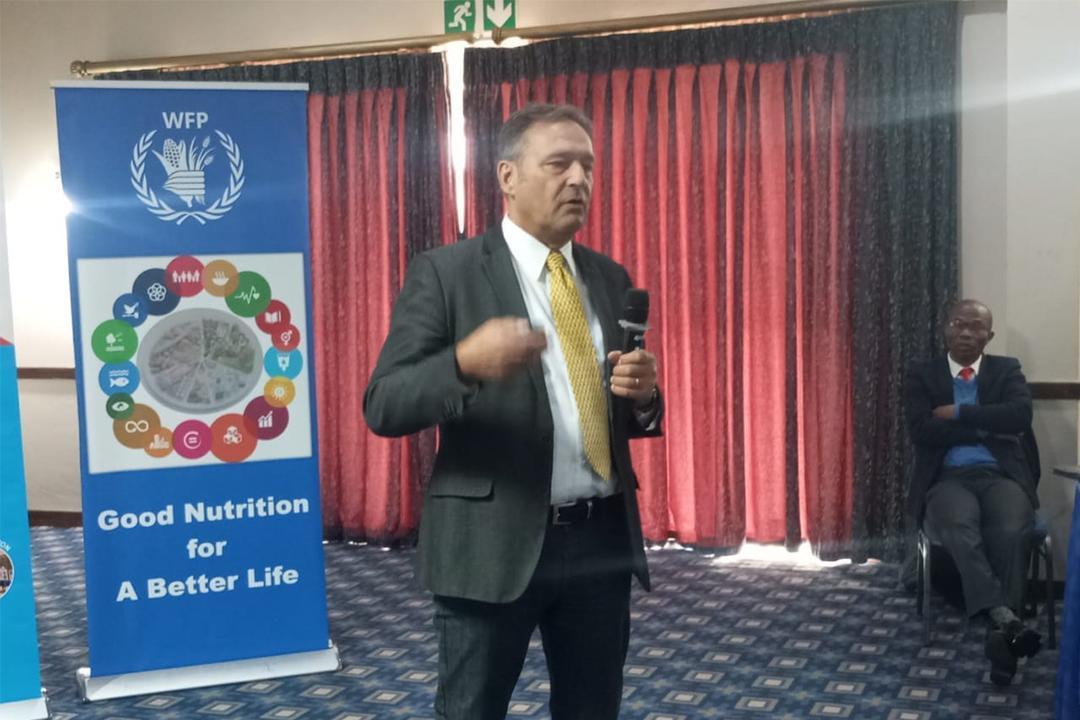Africa-Press – Eswatini. School meals are not just about food on a plate, but a long-term investment in the future of Eswatini’s children.
That was the message from the World Food Programme (WFP) as they took the stage during Day 1 of the SABER-SF National Workshop, currently underway at The George Hotel in Manzini.
Delivering remarks on behalf of the WFP Head of Office, Programme Policy Officer Bhekinkosi Kunene said the two-day workshop marks a turning point in Eswatini’s efforts to build a stronger, more sustainable school feeding system.
He described the meeting as a “significant milestone” in the country’s journey to institutionalise school meals as a key pillar in education and development.
The workshop, which kicked off on Tuesday, follows the launch of the Systems Approach for Better Education Results – School Feeding (SABER-SF) assessment on 3 July 2025.
Kunene explained that this is the first time Eswatini is undergoing the full SABER-SF process, with the Ministry of Education and Training leading the charge, supported by technical experts and WFP teams from both the local and regional offices.
“WFP is proud to walk this journey with the Government of Eswatini,” said Kunene.
“This is not just a review process , it’s a collective move towards evidence-based planning, national ownership, and long-term sustainability of school feeding in the Kingdom.”
Kunene stressed that school meals should be seen as a powerful development tool. He said when done right, school feeding programmes improve learning outcomes, increase attendance, boost nutrition, and even support local farmers through home-grown food sourcing.
“School meals are a vital investment in the health, education, and future of our children,” he said.
“This is about giving every learner the opportunity to thrive, in the classroom and beyond.”
He highlighted that the SABER exercise is examining Eswatini’s school feeding framework in depth, looking at policy, institutional capacity, funding models, programme design, and community involvement.
The insights gained will help shape a blueprint to build a more inclusive and resilient school feeding system that leaves no child behind.
Kunene commended the Ministry of Education and Training for its leadership, and acknowledged the role played by all stakeholders, including UN agencies, development partners, educators, and civil society, in championing children’s rights and educational outcomes.
As discussions got underway, Kunene encouraged participants to be open, bold, and forward-thinking in shaping the future of school meals in Eswatini.
He called for meaningful dialogue and solutions that will ensure the programme reaches every child, every day.
The opening day also featured a powerful presentation by Senior Inspector Nutrition Thobile Gamedze, who revealed that the National School Feeding Programme is currently feeding over 340 000 learners across 921 public schools, which includes 582 primary and 339 secondary institutions.
She described the programme as a lifeline for many learners, and a key driver of school attendance and performance.
WFP reaffirmed its commitment to supporting the Government of Eswatini in achieving its school feeding and education goals.
“Together, let us harness the power of school meals to drive development, equity, and opportunity for all,” Kunene concluded.
For More News And Analysis About Eswatini Follow Africa-Press







